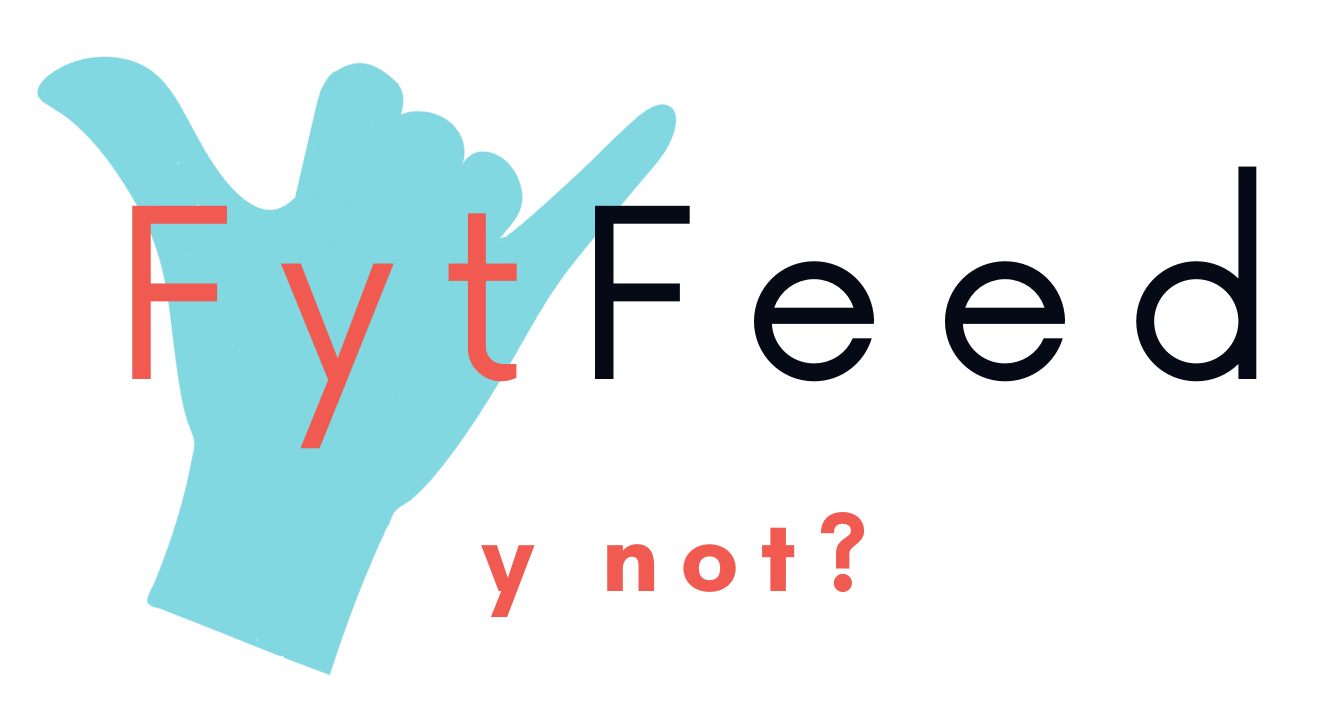What is your “Y”?
At first, that answer may seem easy to answer. I live an active lifestyle to stay healthy and feel confident in my own body. That is the answer most people would give off the cusp—without thinking too much about their motivations for why they live the lifestyle that they do. If it were that simple, then why do we struggle to stay motivated sometimes? And why do some people, even when they have a desire to live an active and healthy lifestyle, struggle to maintain that?
So for the, “What’s Your Y” series, I wanted to sit down and think about my lifestyle choices and my deepest motivations for living an active life. What drives me to get up and get moving almost every day of my life? And, how did I start that lifestyle in the first place? These motivations will also help explain what made me want to start FytFeed, and what I hope can help others throughout their active living journey.
"What is your "Y"?... If it were that simple, then why do we struggle to stay motivated sometimes?"
Dennis Ashford, co-founder FytFeed Tweet
Since I was young, I always had a big appetite and rarely felt full during meals. I would find myself eating more than the adults around me, and then constantly snacking throughout the day. Both of my parents worked full-time jobs, so we went out to eat almost every night when I was young, and breakfast consisted of fast, easy to serve, sugary meals (cereal, pop-tarts, etc.). Not to mention, I was a pretty picky eater so mainly ate unhealthy fried foods.
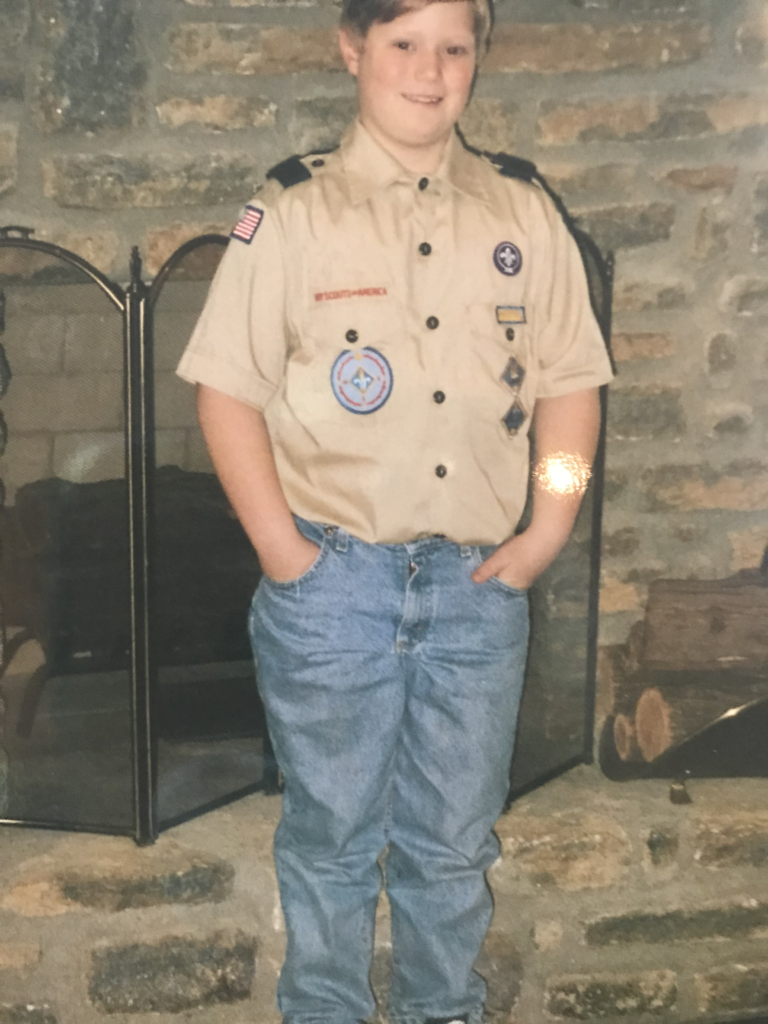
Photo of Dennis in the sixth grade.
These eating habits caused me to be on the heavier side throughout my young life, struggling with body image and ways to hide my weight. However, lucky for me, I was also incredibly active. I played football for 14 years and was a captain on our high-school team. I also played basketball and baseball up to middle school until I decided to focus on football. I basically worked out every day of the week, either on the practice field or in the weight room. My activity level kept my weight mostly in check, and I was in decent shape throughout high school.
However, once I stopped playing football my senior year, I quickly went from 225 lbs to 250 lbs in a few months. The inactivity of being done with high-school sports while maintaining my same eating habits really took a tool on my body. In fact, around the same time, my doctor told me that I had high blood pressure, and I may have to go on medication to control it. I was 19 and already had high blood pressure! The day I saw 250 lbs on the scale was the day that I decided to change my life.
This is where our motivators come into play. I no longer was being ‘forced’ to be active by going to football practice or the weight room. I had to have my own motivation to get off the couch and be active, and make a serious change in my eating habits. My initial motivations for starting this lifestyle were to lose weight and have a better body image. Many people start out with these same motivating factors. These motivations are extrinsic in nature, where we are working toward a goal or a number.
Types of Motivation
Our recent blog post discussed, in detail, the meaning of extrinsic motivators. This is where most people find themselves when they start their fitness and health journeys, and that is exactly where I was. I wanted to lose weight, so I got a gym membership and started to work to change my eating habits. Well, as most people know, it simply isn’t that easy. In fact, it was incredibly hard to change both my activity and eating habits. I struggled, a lot, with overeating and losing motivation to go to the gym. However, I knew that if I just kept getting more small wins than losses (like burning more calories in a day than I ate, getting up in the morning and going to gym, choosing grilled vegetables over fries), eventually the number on the scale would start to go down.
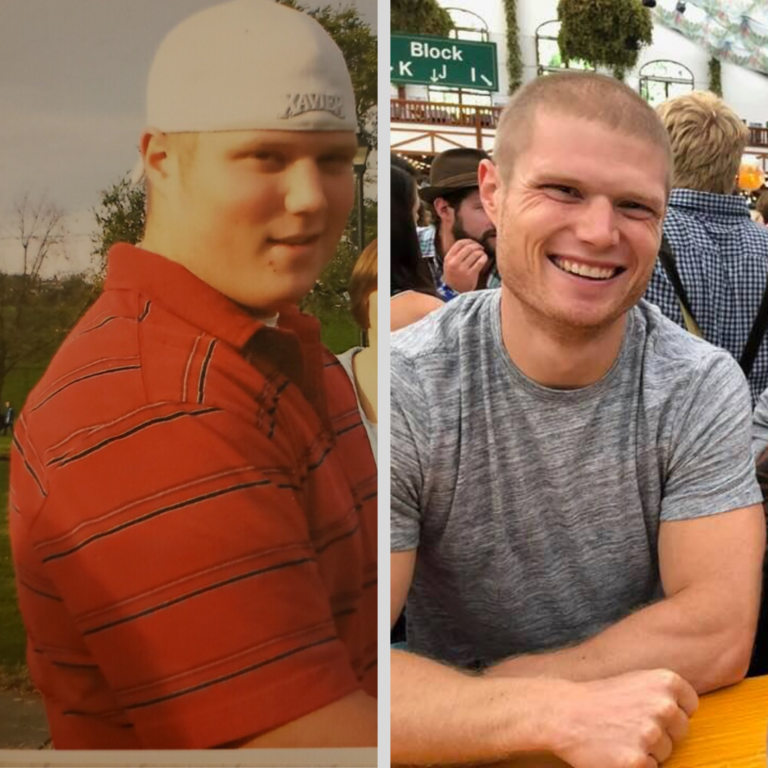
Photo of Dennis in high school (left) and now (right).
My Weight Loss Journey
I obsessively viewed each day as if it were a game, ensuring that I burned more calories than I ate. In the span of six months, I had lost 60 pounds! While the number on the scale made me happy, I actually felt terrible. After six months of losing weight, I realized that I lost most of my muscle mass also (because I was starving myself). I had gotten obsessed with the number on the scale, and stopped paying attention to how I looked or felt. I needed to change my habits again—but this time, the numbers on the scale weren’t motivating me.
"I obsessively viewed each day as if it were a game, ensuring that I burned more calories than I ate.
Dennis Ashford, co-founder FytFeed Tweet
I wanted to gain back the strength I had during my high-school football days. I was overweight at that time, but I was also proud of how strong I was. I started looking online for help and motivation and found some within chats and forums like Muscle and Strength. While these forums are not as popular as they used to be, they were a great resource for me, and others, to discuss our fitness journeys with one another. I was able to seek out information and motivation within those forums, and also provide some to others as I learned and progressed in my own journey.
At this point, I was also in college and was working at a local gym part-time for spending money. The community I built around myself at that gym also helped me stay motivated, and taught me about the balance between fueling my body and maintaining my body weight. At this point, my mindset around food and activity changed, and instead of feeling like I had to go to the gym or eat that salad, I wanted it, and it became a part of my lifestyle.
In hindsight, this is the exact point when I would fall back into my old habits in the past and go through the yo-yo dieting that so many do. The initial motivation to get active and healthy is what gets people moving, but the motivation to stay on this journey is what differentiates those who are able to stay healthy and those who go through the yo-yo process again and again. For me, my major motivative factor was the desire to never go through the dieting process again and the community I had to support me in that. Dieting is hard. Period. And I never wanted to have to look at a scale again and worry about losing all of that weight again.
My Intrinsic Motivational Journey
As my health and fitness journey continued, I began to notice that if I missed a workout or was not eating well, I really started to feel my mental state change in a downward trajectory. If I went a few days without being active, I would fall into a state of what some may call depression. And the problem with that is once you start to feel this way, it can kill your motivation to get active again, which would deepen those bad feelings, and eventually become a vicious cycle. Through this process I started to notice that if I could just get myself to be active even on days I didn’t feel like it, I would feel so much better!
What I was discovering about myself had already been well established within scientific research. Exercise releases ‘feel good’ chemicals (endorphins) in your brain (Cohen 2010). What may shock you is that these are same chemicals that powerful opioids release, which can lead dependency on them. What I was experiencing when I was inactive for several days was a lower amount of endorphins in my system, making me feel worse than when I was being active. In fact, research has shown that you do not need to engage in strenuous physical activities to release these chemicals, but simply getting up and moving often can increase endorphin levels. However, it does show that the harder an exercise is, the more endorphins are released (Cohen 2010).
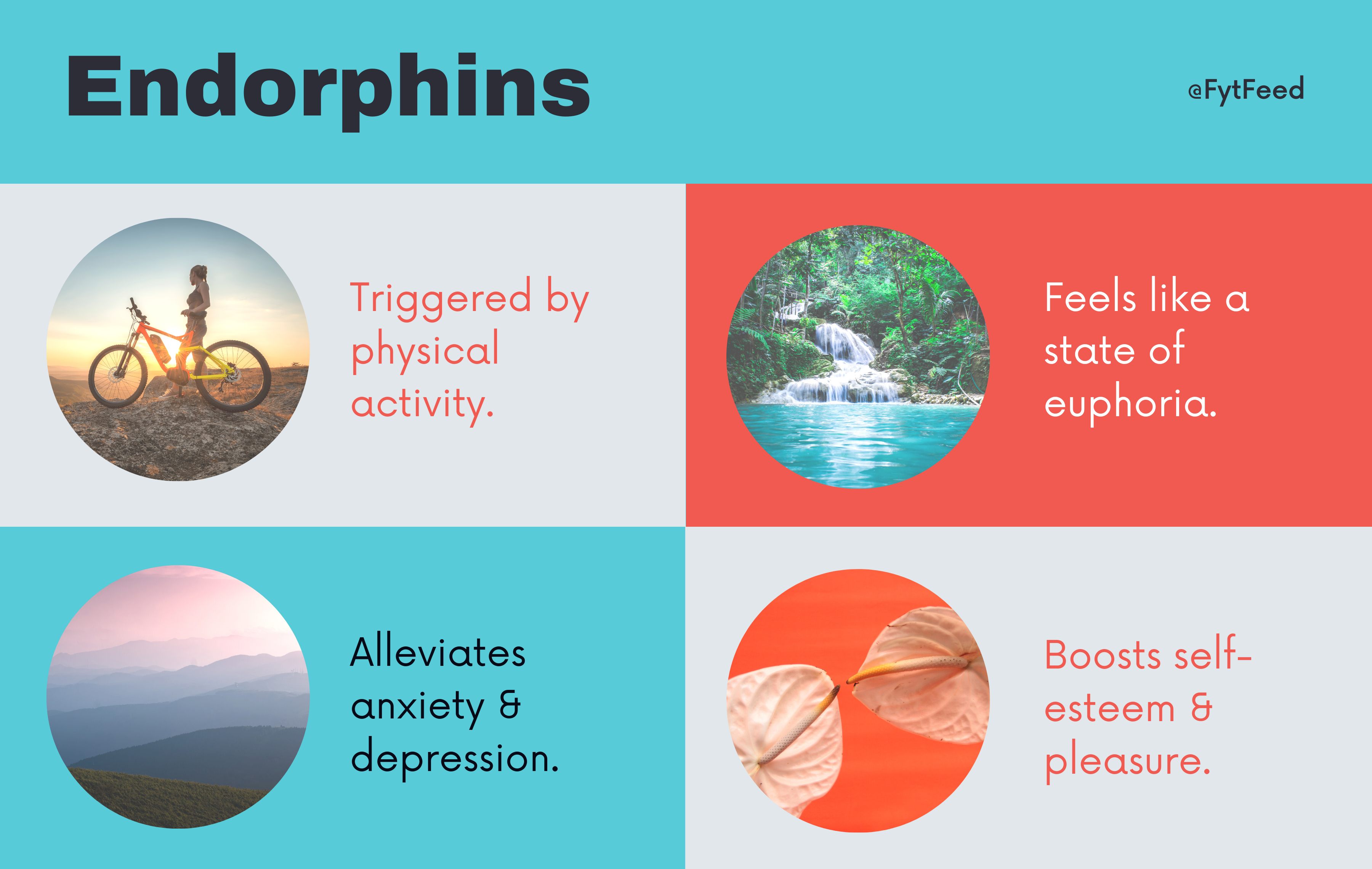
I was experiencing the joy of being active, and the more active I became, the more I enjoyed doing so. This is where my original extrinsic motivation of losing weight turned into the intrinsic joy of living an active lifestyle. At the same time, I was exploring other options to be active outside of the traditional gym setting. During my undergraduate studies I messed around with rock climbing. In graduate school, I spent several years playing and practicing golf because I just loved being outside. I even have a hole in one! While these sports were fun and enjoyable, they did not have the impact on me that whitewater kayaking and rafting did, which ultimately changed my life.
I had gone whitewater rafting with my father since I was 14 years old, and we made it a yearly trip. I was awe-inspired by the power of the water and beauty of river gorges. But, I never thought about doing the sport myself without a professional guide. I met some people who were part of a large kayaking community in North Carolina, and they convinced me to purchase a boat and the necessary safety gear with the understanding that they would teach me how to kayak. And sure enough, they did!
Those first community members were part of the Carolina Canoe Club, one of the largest whitewater organizations in the country. They were immediately willing to help me learn the sport because they wanted to share the experiences they loved. In particular, Joe Berry, who is now the president of the organization, loved showing me the ins and outs of the sport. I also learned that all activities have these types of communities that want to help you learn and build your skills! No one is there to judge you!
Whitewater kayaking showed me that being active did not just mean going to the gym and weight training or running on a treadmill. Fitness is a very broad term that means different things for different people. But in a general sense, it relates to your overall health and ability to do physical activities. Whitewater paddling is a sport that I truly love to do, and while I never think about the sport as being exercise, it can be just as hard or harder than a tough gym workout. Again, my intrinsic motivator of truly enjoying being out on the water has now caused me to be even more active than I was before I started paddling.
I started to become surrounded by the active mountain sports community and began trying other activities like mountain and road biking. I bought a used mountain bike and decided to take it to the trail by myself for the first time for fear of embarrassing myself with more experienced riders. I honestly thought I was going to die during that first ride, because not only did I ride the trail in the wrong direction but also did not fit the bike to my body.
I had already forgotten the lesson I learned from paddling! Go and find the community, and they will be more than willing to help you and motivate you. So, that is exactly what I did, and now I have been riding consistently with the community for five years. I now find myself wanting to go ride, and while I was doing very challenging cardiovascular workouts on my bikes, it didn’t feel like it. I was being drawn to be active because I truly enjoyed the sports I was doing. At the same time, I was still going to gym and strength training a few times a week.
"Go and find the community, and they will be more than willing to help you and motivate you."
Dennis Ashford, co-founder FytFeed Tweet
At this point, I am 33 and in the best in the best shape of my life because I enjoy what I am doing to be active. My initial extrinsic motivator of losing weight 14 years ago has transformed into an extremely active lifestyle. One that has truly turned my life around for the better. I have more energy, feel better, and have more self-confidence than I ever have. Through this journey I have learned so much: from what type of weight training I should do to how to eat healthier even with a busy schedule. But the most important thing I have learned is finding what I like to do to be active and diving in. I still get that rush of endorphins every time I go to the gym, hit the water or the trails, and I still feel down if I don’t do anything for a few days.
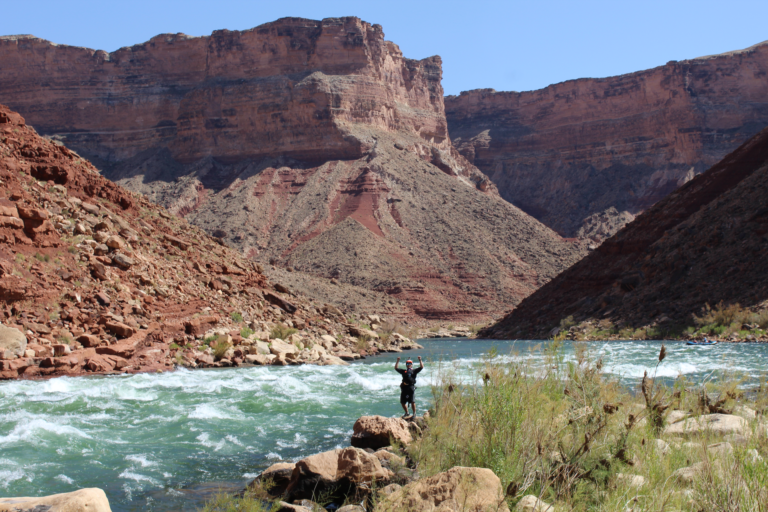
Photo of Dennis enjoying his kayaking trip down the Grand Canyon.
Find what you like and dive in. Don’t worry about how good you are or what other people think. Seek out the community within that activity and don’t be afraid to ask for help. They want to help you! This is your life, and being active should be part of it. My “Y” is now having fun with my friends being active. Take time and find yours. It will change your life forever.
References
- Cohen, E. E., Ejsmond-Frey, R. Knight, N., Dunbar, R. I., Biol. Let., 2010, 6, 106-108, doi: 10.1098/rsbl.2009.0670
